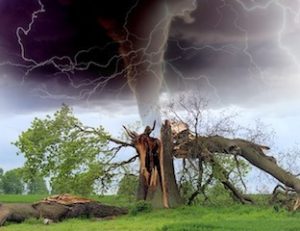Julia’s story highlights the roots of anxiety & panic
What are the common roots of anxiety and panic?
Here are seven common roots of anxiety and panic, and Julia’s story will reveal an important eighth.
- A natural tendency towards anxiety in our personality or genetic make-up.
- Personally, I believe this is more to do with your mother’s experiences during her pregnancy with you.
- If you’re a mother, I invite you to reflect on your own children’s personality and what your pregnancy was like with each child.
- Having anxious parents that rubs off on us due to the environment we grew up in.
- We obviously learn how to cope with life by observing and being guided by our parents. So, if our parents were anxious or panicked, then we’ll naturally imitate that coping style.
- Experiencing a significant amount of stress in childhood due to unstable and unpredictable environments.

- For example, bullying, dangerous neighbourhood, addicted parents, family mental health issues, poverty, death or significant illness.
- The stress response is regularly activated and disrupts proper development of our nervous system and ability to cope with stress.
- Experiencing or witnessing a traumatic event like abuse, rape, assault, murder, death of a loved one, car crash.
- Because your survival was threatened, your system will have heightened awareness and be on the lookout for danger – hyper-vigilance.
- Having critical or strict parents that only gave conditional love, i.e. you were only loved if you behaved, did it ‘right’ and/or achieved.
- If you have perfectionistic traits as an adult, it could be an indication of this in your upbringing.
- Years of constant low-grade stress and overwhelm – common in the modern world – that gradually undermines your foundations.
- This is one of the most insidious and negatively impactful things to our overall health and wellbeing on the planet today.
- A poor diet that impacts the microbiome in the gastrointestinal tract, as well as your mood state.
- I’ve personally observed that gluten makes me more anxious and I’m more likely to comfort eat when anxious with sugary or crunchy foods.
Julia’s story of experiencing anxiety and panic
You may have heard of some or all of those roots of anxiety and panic, but I’d like to tell you a story about Julia – the name has been changed for privacy – to highlight another cause of anxiety and panic that is not so widely known.
In the last couple of years, Julia has been experiencing panic attacks, to the point that she only feels comfort and relief when she’s confined in a cupboard.

Julia said she remembers being in a park with her husband and kids on a windy day. At one point a branch came off a tree and hit the ground. Fortunately, Julia and her family weren’t near it or injured in any way, but Julia said she now has a fear of windy days.
Sadly, this is to the point that she feels panic on strong windy days and struggles to pick up her kids from school due to panic. Of course, she makes herself do it, but it’s a traumatic experience
Now Julia is an intelligent woman and she knows that there is no rational reason for the fear. Yes, the branch fell. Yes, it was a windy day. Yes, it was kind of close to them. But nothing happened.
Why does Julia’s brain trigger panic?
So why is Julia’s brain triggering panic attacks on windy days?
We delved a little deeper. I asked Julia whether she had any stressful childhood experiences on windy days.

Julia said she doesn’t have any conscious recollection of it and really only remembers it because of her mother telling the story throughout her life. Interestingly, when Julia was talking about the incident, her voice changed and it didn’t sound like her anymore.
Now this is a very interesting thing that I’ve studied. Due to certain family dynamics and certain life experiences, we actually go into another person’s identity when we relate to certain situations or life experiences.
Think of it like having your work persona, friend persona, family persona, Mum persona, etc. And of course, the classic example is when you’re partner or sibling points out that you’re being just like your mother!
Being in your own identity is important to resolve anxiety and panic
So why is that relevant? Well, unless we are in our own identity, we cannot fully integrate our life experiences and that can lead to us effectively staying stuck in someone else’s trauma. As if ours wasn’t enough, right?!
The cyclone trauma was imprinted on Julia from her mother and then once a similar situation with strong winds and potential danger threatened Julia and her children, it triggered off a survival mechanism for Julia, i.e. panic.

That’s why when helping you deal with anxiety and panic, we always address the roots of the problem. And being in your own identity often completely changes your experience and ability to cope with the stress or trauma. It will also help you to fully integrate stressful experiences and trauma so they no longer affect you and trigger off anxiety and/or panic.
If you’re experiencing anxiety and/or panic, I guarantee you that there will be established roots and very good reasons for it, rather than some personality weakness or fault.





